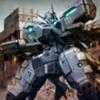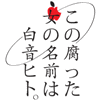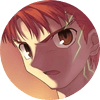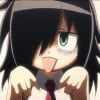| View previous topic :: View next topic |
| Author |
Message |
|
|
Gyt Kaliba
 Joined: 25 Nov 2007
Joined: 25 Nov 2007
Posts: 712
Location: Arkansas
|
 Posted: Wed Jan 22, 2014 5:13 pm Posted: Wed Jan 22, 2014 5:13 pm
|
 |
|
|
...Clearly Himura Kenshin actually existed. That's what I'm taking from this.
Seriously though, words cannot express how badass I find this discovery for some reason. That's just...awesome! I wonder if Watsuki has heard yet?
|
| Back to top |
|
|
|
StormVanguard
 Joined: 29 Dec 2013
Joined: 29 Dec 2013
Posts: 149
|
 Posted: Wed Jan 22, 2014 5:22 pm Posted: Wed Jan 22, 2014 5:22 pm
|
 |
|
|
Is this really a new discovery?
Surely there's been more reverse blades discovered.
|
| Back to top |
|
|
|
Levitz9
 Joined: 06 Feb 2007
Joined: 06 Feb 2007
Posts: 1022
Location: Puerto Rico
|
 Posted: Wed Jan 22, 2014 5:52 pm Posted: Wed Jan 22, 2014 5:52 pm
|
 |
|
| StormVanguard wrote: | | Is this really a new discovery?
Surely there's been more reverse blades discovered. |
Indeed, this is new. Everything known about traditional Japanese swordcrafting tells us that the technology for making reverse-blades didn't exist back then: only with today's modern techniques are such things feasible.
I don't know how the heck they managed to make this thing, although seeing as it's more of a long dagger instead of a sword does explain things.
|
| Back to top |
|
|
|
Gyt Kaliba
 Joined: 25 Nov 2007
Joined: 25 Nov 2007
Posts: 712
Location: Arkansas
|
 Posted: Wed Jan 22, 2014 6:03 pm Posted: Wed Jan 22, 2014 6:03 pm
|
 |
|
| Levitz9 wrote: | | Everything known about traditional Japanese swordcrafting tells us that the technology for making reverse-blades didn't exist back then: only with today's modern techniques are such things feasible. |
Huh, really? That part's news to me, I just assumed they wouldn't have made them because...well, back then during the time when swords were actually used as weapons in war, I would have thought killing was the imperative. It never occurred to me that they actually couldn't be made or something.
|
| Back to top |
|
|
|
|
Fronzel
Joined: 11 Sep 2003
Posts: 1906
|
 Posted: Wed Jan 22, 2014 7:09 pm Posted: Wed Jan 22, 2014 7:09 pm
|
 |
|
|
Does anyone have any idea why this unusual blade was created?
|
| Back to top |
|
|
|
shiranehito
 Joined: 27 Dec 2011
Joined: 27 Dec 2011
Posts: 793
|
 Posted: Wed Jan 22, 2014 8:10 pm Posted: Wed Jan 22, 2014 8:10 pm
|
 |
|
|
Wow, this is an interesting find. Though, it could be much more shocking if it was katana instead of wakizashi.
I wonder why did they make this kind of sword. I think someone should look deeper for it. Perhaps someone like Himura Kenshin really did exist.
|
| Back to top |
|
|
|
|
Dragkin
Joined: 24 Jan 2005
Posts: 4
|
 Posted: Wed Jan 22, 2014 8:20 pm Posted: Wed Jan 22, 2014 8:20 pm
|
 |
|
|
As an interesting side note, the article says that the sword was found by the Kawakami family. The real-life character that Kenshin is based on was a guy by the name of Kawakami Gensai - purely coincidence I am sure, but a neat little side note I think.
|
| Back to top |
|
|
|
|
grooven
Joined: 16 Aug 2006
Posts: 1431
Location: Canada
|
 Posted: Wed Jan 22, 2014 9:33 pm Posted: Wed Jan 22, 2014 9:33 pm
|
 |
|
This is so cool  History is pretty awesome sometimes, like this! History is pretty awesome sometimes, like this!
|
| Back to top |
|
|
|
Levitz9
 Joined: 06 Feb 2007
Joined: 06 Feb 2007
Posts: 1022
Location: Puerto Rico
|
 Posted: Wed Jan 22, 2014 9:34 pm Posted: Wed Jan 22, 2014 9:34 pm
|
 |
|
| Gyt Kaliba wrote: |
| Levitz9 wrote: | | Everything known about traditional Japanese swordcrafting tells us that the technology for making reverse-blades didn't exist back then: only with today's modern techniques are such things feasible. |
Huh, really? That part's news to me, I just assumed they wouldn't have made them because...well, back then during the time when swords were actually used as weapons in war, I would have thought killing was the imperative. It never occurred to me that they actually couldn't be made or something. |
The real reason behind there not being many reverse-blade swords is much simpler, really.
The way I understand it, because of the quality of Japanese iron and the techniques used to forge Japanese swords, a katana earned its curve naturally during the process of forging.
Note that I'm no expert: someone could prove me wrong, no doubt.
|
| Back to top |
|
|
|
XerBlade
 Subscriber
Exempt from Grammar Rules
 Joined: 11 Jul 2005
Joined: 11 Jul 2005
Posts: 162
Location: Depletion Garden, Nashville, TN
|
 Posted: Wed Jan 22, 2014 10:45 pm Posted: Wed Jan 22, 2014 10:45 pm
|
 |
|
|
Proof RuroKen was based on a true story.
On the curvature topic:
The curvature of a sword was most certainly not an accidental effect of the smithing techniques. In fact, of the several specialists in charge of creating any single sword, one would be someone whose only job was to be the expert in ensuring the sword took the perfect shape.
While not always the case, often Japanese blades would actually be made with multiple different layers of folded steel with different levels of purity and hardness, that were welded and hammered together in the latter stages of development. The very blade itself would be added on after the forming of the central structure.
The curvature of the modern (note I use the term "modern" in much the way historians do: to refer to the last several centuries) Japanese blade is specifically and purposefully engineered to maximize the cutting power of the blade. The idea is to have a perfect balance between surface area of the blade and feasible strength/leverage in the swing. The end result is that, when wielded properly, the blade is actually slicing (in the sense a steak knife slices steak) and cutting in perfect unison with little to no loss in force.
|
| Back to top |
|
|
|
Agent355
 Joined: 12 Dec 2008
Joined: 12 Dec 2008
Posts: 5113
Location: Crackberry in hand, thumbs at the ready...
|
 Posted: Wed Jan 22, 2014 11:20 pm Posted: Wed Jan 22, 2014 11:20 pm
|
 |
|
|
Really interesting sword facts in this topic!
Do they know how old the reverse bladed dagger is?
|
| Back to top |
|
|
|
|
Banken
Joined: 29 May 2007
Posts: 1281
|
 Posted: Thu Jan 23, 2014 3:54 am Posted: Thu Jan 23, 2014 3:54 am
|
 |
|
|
Very interesting find, although I have to wonder what it was used for.
IIRC the curve of a katana comes from the fact that the blade is heat-treated with clay on only on side of the blade. Since the back half of the blade cools faster than the sharp half, the entire blade bends as it quenched.
To make a sakabato, you would have to use clay on the back of the blade and no clay on the edged portion, which would make the blade bend backwards, but would leave a hamon on the wrong side of the blade and would also mean the sharp part is improperly heat treated.
I think this explains why this blade has no hamon; in order to forge it with a reverse blade, they had to use some non-traditional heat treating technique. No clay, no hamon, no curve.
|
| Back to top |
|
|
|
Levitz9
 Joined: 06 Feb 2007
Joined: 06 Feb 2007
Posts: 1022
Location: Puerto Rico
|
 Posted: Thu Jan 23, 2014 9:03 am Posted: Thu Jan 23, 2014 9:03 am
|
 |
|
| XerBlade wrote: | | Proof RuroKen was based on a true story.
On the curvature topic:
The curvature of a sword was most certainly not an accidental effect of the smithing techniques. In fact, of the several specialists in charge of creating any single sword, one would be someone whose only job was to be the expert in ensuring the sword took the perfect shape.
While not always the case, often Japanese blades would actually be made with multiple different layers of folded steel with different levels of purity and hardness, that were welded and hammered together in the latter stages of development. The very blade itself would be added on after the forming of the central structure.
The curvature of the modern (note I use the term "modern" in much the way historians do: to refer to the last several centuries) Japanese blade is specifically and purposefully engineered to maximize the cutting power of the blade. The idea is to have a perfect balance between surface area of the blade and feasible strength/leverage in the swing. The end result is that, when wielded properly, the blade is actually slicing (in the sense a steak knife slices steak) and cutting in perfect unison with little to no loss in force. |
Thanks for the clarification!
|
| Back to top |
|
|
|
Sariachan
 Joined: 09 May 2005
Joined: 09 May 2005
Posts: 1507
Location: Italy
|
 Posted: Thu Jan 23, 2014 2:41 pm Posted: Thu Jan 23, 2014 2:41 pm
|
 |
|
I'm watching this topic, thanks for the interesting info everybody! 
|
| Back to top |
|
|
|
|
bwcbwc
Joined: 30 Apr 2008
Posts: 59
|
 Posted: Thu Jan 23, 2014 3:14 pm Posted: Thu Jan 23, 2014 3:14 pm
|
 |
|
| shiranehito wrote: | | Wow, this is an interesting find. Though, it could be much more shocking if it was katana instead of wakizashi.
I wonder why did they make this kind of sword. I think someone should look deeper for it. Perhaps someone like Himura Kenshin really did exist. |
One reason I can think of for a reverse blade would be that it was intended for use in seppuku or jigai. Another possibility is if it's an assassin's blade (go ninjas!). Either hypothesis would also explain the short blade as well. on the other hand, a reverse curved blade is not the traditional choice for either of the suicide rituals.
|
| Back to top |
|
|
|
|
 Subscriber
Subscriber